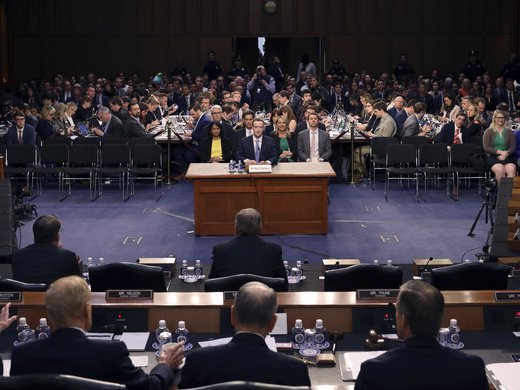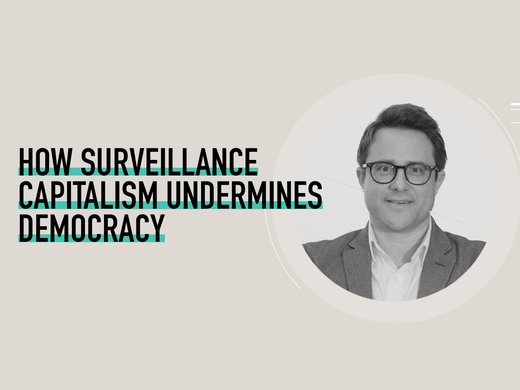Canadian content has long been a contentious cultural policy issue.
The main idea: for Canada to be a distinct society, the country needs its own stories. The nation is next door to one of the world’s cultural powerhouses, and there is a reasonable concern that if Canada doesn’t uphold its own distinct culture — through stories, entertainment and other cultural content — it will just be subsumed by American culture.
In Canada, as in many countries, sovereignty is closely tied to culture. And, as a result, the Canadian cultural industries revolve around government support, funding and regulation. That long-standing norm is complicated immensely by the rise of digital media.
Radio and television first brought Canadian culture into people’s homes. Existing policies — which fall under the jurisdiction of the Canadian Radio-television and Telecommunications Commission (CRTC) — that allowed for such communication weren’t written for the internet.
The Rise of "Free Content"
The media advertising sector is now largely controlled by two foreign companies, Facebook and Google. At the same time, media distribution is slipping away from traditional telecommunications and cable operators to technology giants such as Netflix, Amazon and YouTube.
This loss of control poses an existential threat to Canadian cultural industries who have relied on all-but-extinct advertising revenues derived from telecommunications and cable distribution. Government subsidies, whether grants or tax credits, that were partly derived from and meant to supplement these systems cannot fill an increasing gap in revenue.
The business model employed by cultural industries has undergone a dramatic shift. Media consumers used to buy or subscribe to cultural products — movies, music albums, magazines, cable television, specialty channels and so on. Now consumers largely obtain cultural products for free (as pirated material or content subsidized by advertising) or for a rather small flat fee (in the case of Netflix, Spotify or Amazon Prime Video).
Of course, “free” is actually mislabelling or misperception on the consumer’s part, as the real price they pay is their personal information. This is perhaps the most significant distinction in the new digital era: consumer data is actively collected, analyzed and sometime sold by the companies who provide people with cultural products. In theory, this information allows those cultural producers to provide precisely the kind of content that consumers want. If they want Canadian content, they get it. If they don’t — well, what happens then?
Upgrading Laws for the Internet Age
The federal government is tackling this question with a newly created “expert panel,” the Broadcasting and Telecommunications Legislative Review panel. The group is largely comprised of lawyers, law professors and industry veterans who are tasked with considering ways to upgrade existing laws that govern Canada’s media and cultural industries.
If Canadians are to maintain an active approach to the creation of their culture, should new digital platforms such as Facebook, Alphabet (owner of Google and YouTube), Netflix and Amazon be compelled to contribute funds to the domestic cultural industries? If so, how might these funds be collected so as to prevent the costs of their collection from being passed on to the consumer?
One argument these companies could make is that Canadian culture is in ample supply — as vibrant and diverse as it has ever been — and in large part because of the platforms that technology giants provide. They’ve made it easier for Canadians to share their stories and reach a global audience. However, this argument flounders when it’s considered in the context of industry: how many Canadians sharing their stories on these platforms are being compensated appropriately? How many of them are actually able to make a living as artists and storytellers? Perhaps, rather than paying a tax or a levy to help sustain Canadian culture, companies (like Netflix, Facebook and the like) could pay Canadians their cut of a platform’s pie.
The problem is that the government doesn’t fully understand the business model at work. Large technology companies tend to operate faster than government and somewhat secretly. Government, industry and individuals alike are not presently in a position to quantify what exactly happens and how people get paid in the new digital media marketplace.
Regulation and oversight of the digital commons is essential, not just to preserve sovereignty and to enable appropriate and responsive public policy. Responsiveness, in particular, is key, as these platforms are constantly changing, and with them the broader media landscape.
Arguably, such responsive policy won’t be a product of the government’s new expert panel; it will take them 18 months to issue a report. That’s a ridiculously long time to wait in the internet era. The report will come out after the next federal election, potentially limiting the role that this issue can and should play in electoral debates.
A New Kind of Audience
The government's reliance on an "expert panel" is, perhaps, problematic. Arguably, the real experts are average Canadians — consumers and producers of cultural content.
And there lies another problem — the term “consumer” doesn’t really describe how people engage with cultural content, or any content. It speaks, instead, to an obsolete era of passivity. Today, even the seemingly passive act of consuming produces data in the form of media usage analytics, thereby making every person a producer of data and personal information, even if they are not explicitly creating their own content. In a data-driven economy, citizens need to be regarded as participants — who engage with, support and create the content they desire — rather than as mere consumers.
This premise — that Canadians are active participants in media — inspires a great deal of important questions. Are Canadians aware of the Faustian bargain they enter when watching or creating media? Whose responsibility is it to educate Canadians on such concepts? What policies need to be in place to uphold privacy, security and democracy online?
The media landscape is an uncertain one controlled by global oligopolies that have done a good job of evading regulation. If Canada is to reverse this imbalance and preserve culture, there is a great deal of capacity-building that must take place in order to keep up with a rapidly evolving digital commons and marketplace.
This is not something an expert panel can achieve. The scope of this task eclipses the mandate of the CRTC, or any other existing regulations that cover broadcast, telecommunications or the internet. A dedicated government entity — a ‘Ministry of the Internet,’ so to speak — is a big, but necessary step in understanding and addressing how new platforms and technology impact media and sovereignty alike.




